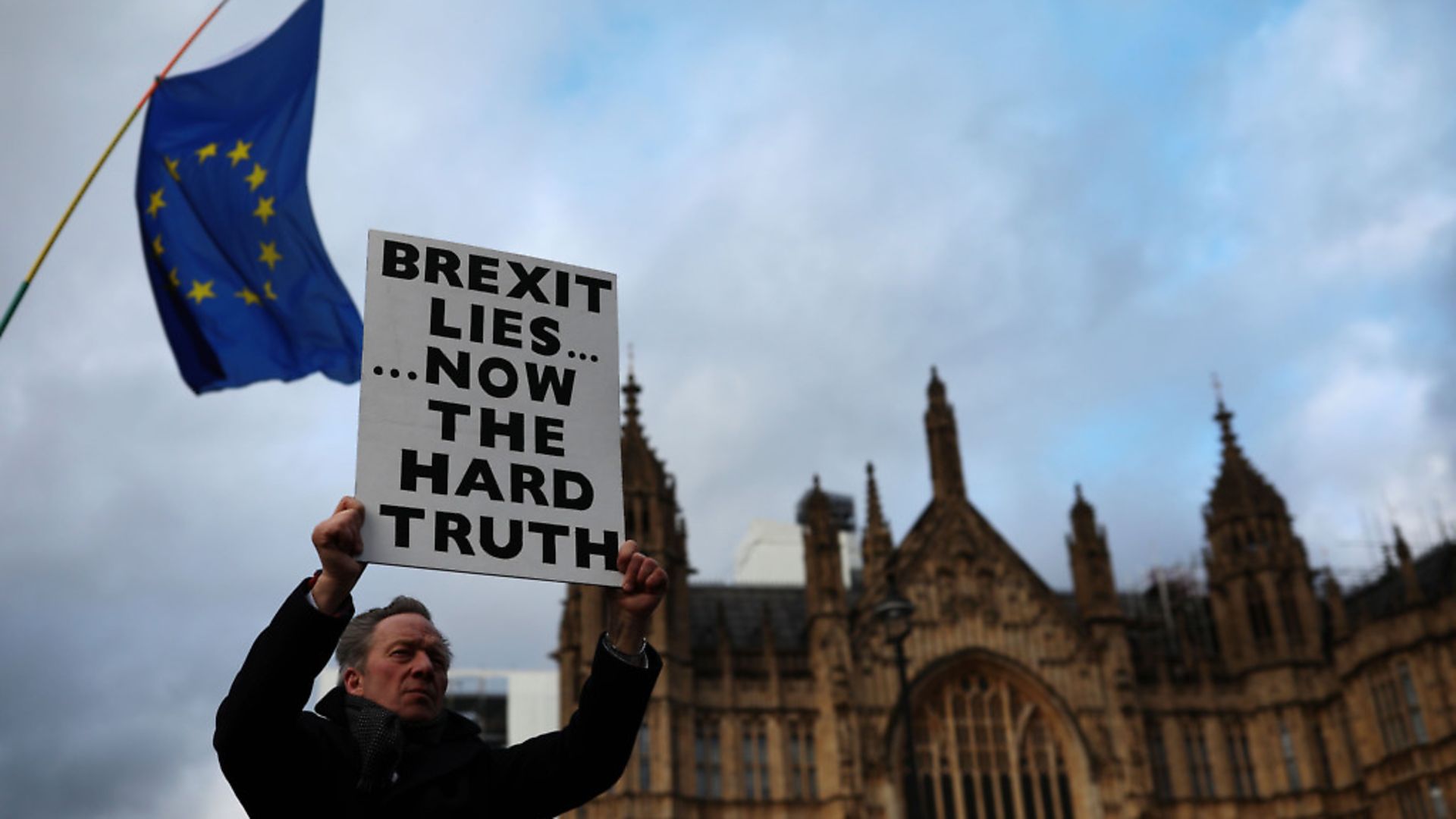
A report into the British economy has found that Britain is £66 billion worse off because of Brexit.
Standard & Poor’s report claims that Brexit has cost the British economy £550 million a week since the referendum as business investment dries up amid political paralysis in Westminster.
Standard & Poor’s suggested that since the June 2016 vote, 3% has been shaved off GDP.
That equates to ‘forgone economic activity’ of £6.6 billion in each of the 10 quarters since the referendum, or £66 billion, the credit ratings agency said.
‘The most visible effect has been the depreciation of the British pound, which triggered an increase in inflation. The ultimate result was to erode household spending power.
‘Household spending would have been considerably stronger – in line with GDP – had the referendum not occurred,’ S&P said in its publication, Countdown To Brexit: What Might Have Been For The UK Economy.
It added that external trade did not see any significant boost from the pound’s collapse, contrary to claims from leading Brexit proponents that exports would be boosted.
S&P senior economist Boris Glass said: ‘Uncertainty over the shape and form Brexit will take has increasingly paralysed any forward-looking decision making.
‘This is reflected in particular in a contraction of business investment in 2018.’
The analysis, based on the Doppelganger economic method, also shows that British-based businesses have ‘ventured well beyond the point of no return’, which will hammer the economy even harder.
‘They have reorganised their business structure to comply with regulation and to safeguard unimpeded EU market access. This will also dampen growth while the economy adjusts to the new business environment after Brexit, whether there is a deal or not.’
The findings are the latest in a series of Brexit impact assessments.
Investment banking giant Goldman Sachs estimated that £600 million a week as been lost because of Brexit, and the Bank of England suggested a figure of around £40 billion per year, or £800 million per week.
All three figures are significantly higher than the £350 million a week the Leave campaign’s bus claimed would be saved by Britain.
Warning: Illegal string offset 'link_id' in /mnt/storage/stage/www/wp-includes/bookmark.php on line 357
Notice: Trying to get property 'link_id' of non-object in /mnt/storage/stage/www/wp-includes/bookmark.php on line 37






